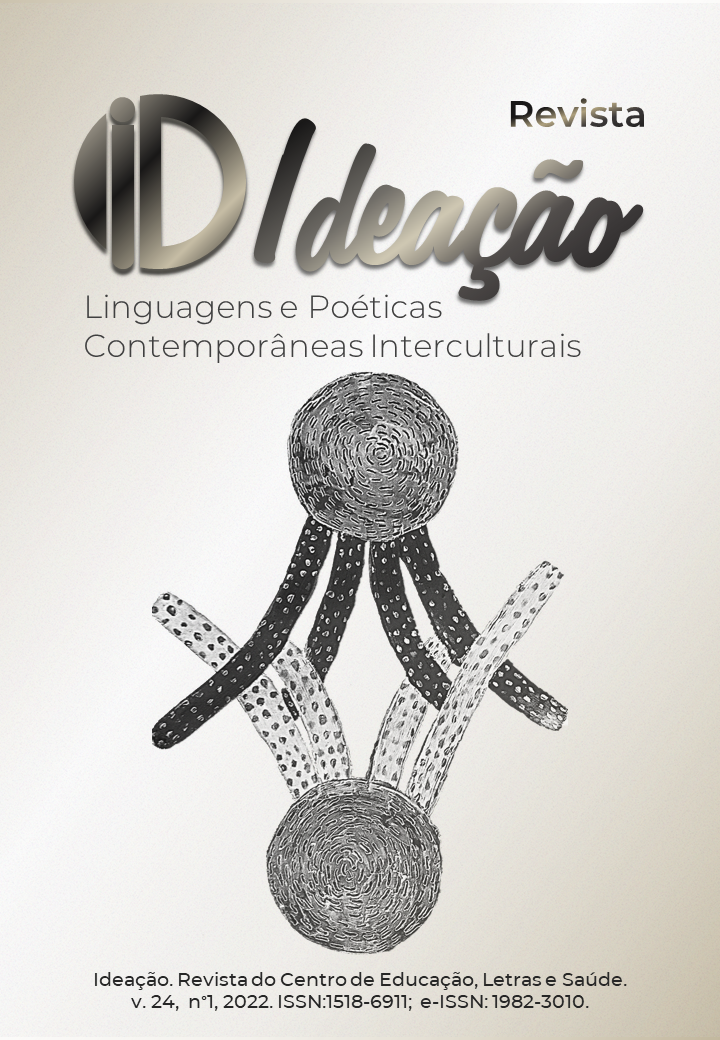A maternidade negra nos contos "Ana Davenga" e "Maria" de Conceição Evaristo
DOI:
https://doi.org/10.48075/ri.v24i2.28872Palavras-chave:
Conceição Evaristo – “Ana Davenga” e “Maria”, Crítica literária feminista, Literatura afro-brasileira, Maternidade negraResumo
Analisa os contos “Ana Davenga’ e “Maria” a partir da temática da maternidade negra. Considera, em perspectiva ginocêntrica, que a escritura de Conceição Evaristo adota “um discurso de duas vozes” termo proposto por Showalter, pois constrói as narrativas sob o olhar da mulher negra, discurso silenciado, e com isso denuncia as opressões de gênero, raça e classe, além de corroborar para a valorização da identidade da mulher negra dentro e fora da literatura. Este estudo leva em consideração os argumentos da literatura afro-brasileira, tomados principalmente de Eduardo de Assis Duarte, Miriam C. dos Santos e Conceição Evaristo, da teoria da literatura defendidos por Jaime Ginzburg, do pensamento feminista negro e do pensamento decolonial, evidenciados por Patrícia Hill Collins, Lélia Gonzalez e Grada Kilomba, e da crítica literária feminista, elaborados por Rita Terezinha Schmidt e Elaine Showalter, para explorar a complexidade da temática maternidade negra.
Downloads
Publicado
Como Citar
Edição
Seção
Licença
Copyright (c) 2022 Direitos partilhados conforme licença CC BY-NC-SA 4.0

Este trabalho está licenciado sob uma licença Creative Commons Attribution-NonCommercial-ShareAlike 4.0 International License.
Política para Periódicos de Acesso Livre
Autores que publicam nesta revista concordam com os seguintes termos:
1. Autores mantém os direitos autorais e concedem à revista o direito de primeira publicação, com o trabalho simultaneamente licenciado sob a Licença Creative Commons Attribution que permite o compartilhamento do trabalho com reconhecimento da autoria e publicação inicial nesta revista.
2. Autores têm autorização para assumir contratos adicionais separadamente, para distribuição não-exclusiva da versão do trabalho publicada nesta revista (ex.: publicar em repositório institucional ou como capítulo de livro), com reconhecimento de autoria e publicação inicial nesta revista.
3. Autores têm permissão e são estimulados a publicar e distribuir seu trabalho online (ex.: em repositórios institucionais ou na sua página pessoal) a qualquer ponto antes ou durante o processo editorial, já que isso pode gerar alterações produtivas, bem como aumentar o impacto e a citação do trabalho publicado (Veja O Efeito do Acesso Livre).
Licença Creative Commons
Esta obra está licenciada com uma Licença Creative Commons Atribuição-NãoComercial-CompartilhaIgual 4.0 Internacional, o que permite compartilhar, copiar, distribuir, exibir, reproduzir, a totalidade ou partes desde que não tenha objetivo comercial e sejam citados os autores e a fonte.


